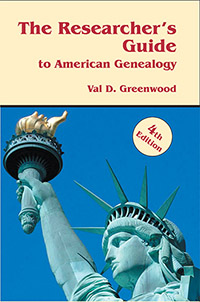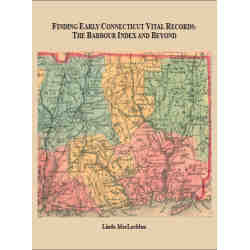
From time to time we have printed excerpts from the 4th Edition of The Researcher’s Guide to American Genealogy, by Val Greenwood, to illustrate the wisdom and value of the guidance it provides researchers. Here are some recommendations Mr. Greenwood conveys about the importance of wills and probate records in genealogical research, with references to the places in the book where they can be found.
20. (chap. 16, p. 421)
There is a legal mechanism provided for the settlement of probate matters (whether there is a will or not). And, because of the required legal procedures, probate matters cannot be settled apart from that mechanism. Thus, when the researcher knows more about the nature and function of that legal mechanism, the records created as part of that process are a more valuable tool in the process of locating and identifying ancestors.
21. (chap. 17, p. 432)
[T]he most significant quality of wills is the fact that they usually identify specific relationships—direct statements of relationship between people by a someone who knows. Nothing is more critical in our research than information on how people are related to each other, and this is direct evidence from a primary source! Names, dates, and places mean little unless these relationships are established. Most other records are of lesser value in this critical area.
22. (chap. 17, p. 432)
I stress that we can often find wills and other probate records for people who lived during periods and in places where there are few other records. Also, most of these are reasonably accessible and are becoming more accessible as the records are being digitized and indexed on major family history websites.
23. (chap. 17, p. 433)
A will may also give you an idea about the existence of other records. A man may mention his religious affiliation in his will, thus leading to church records—often the specific parish or congregation. A man’s profession is very often indicated in his will, either directly or indirectly. If he owned land, that mention is a clue to search land records. If he has extensive property, financial means, or social prominence (usually quite obvious in his will), published sources may be available that tell something about him. Previous military or naval service is also frequently mentioned in a will.





